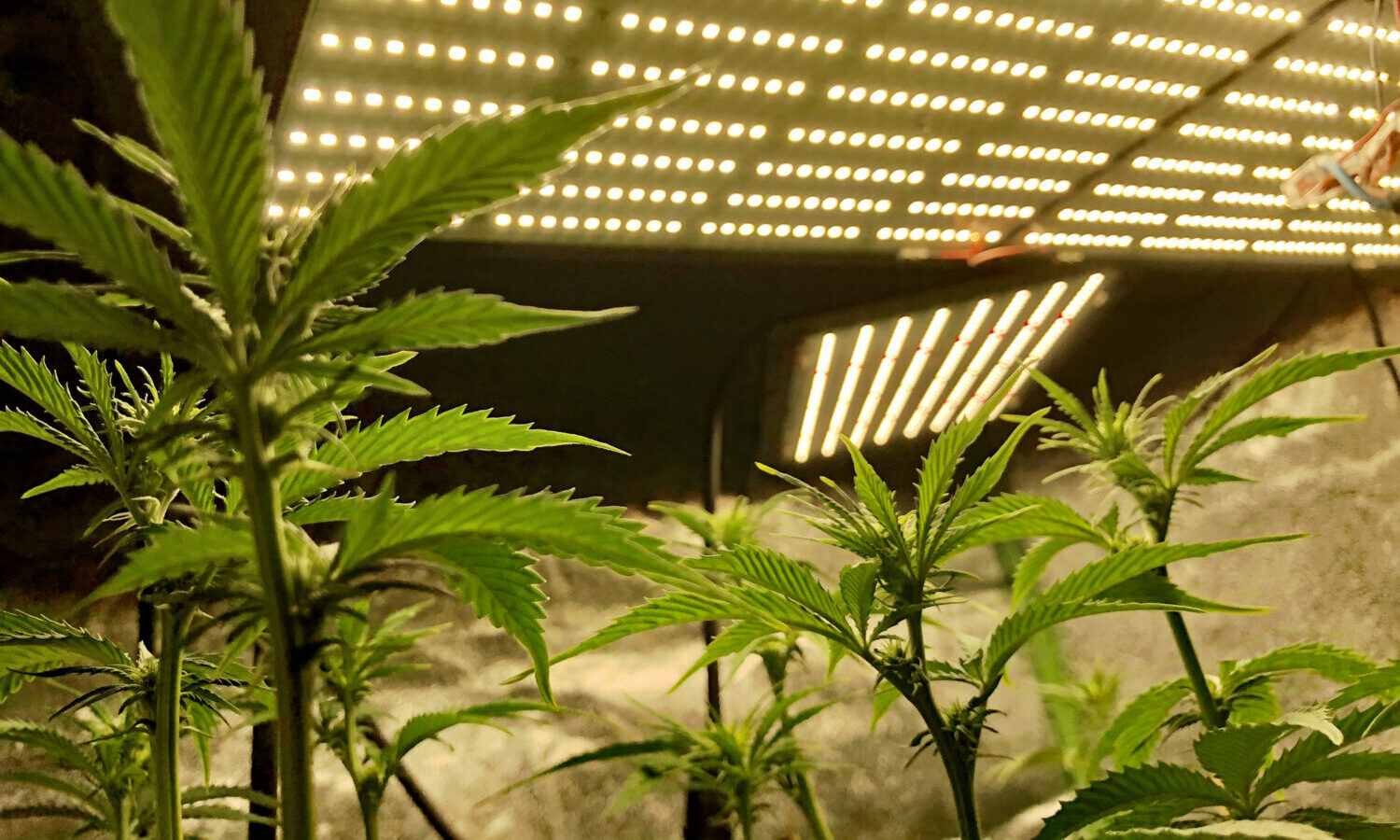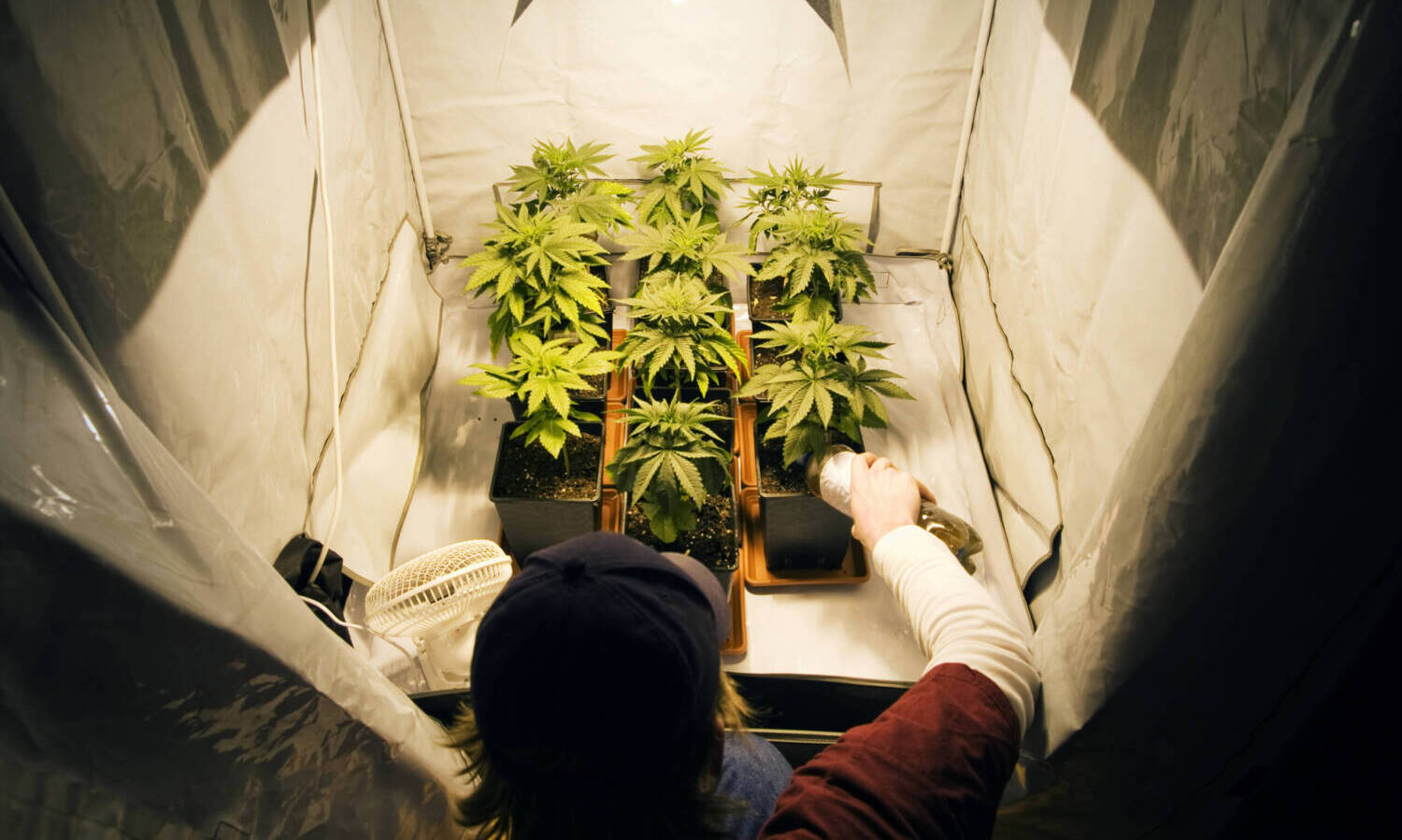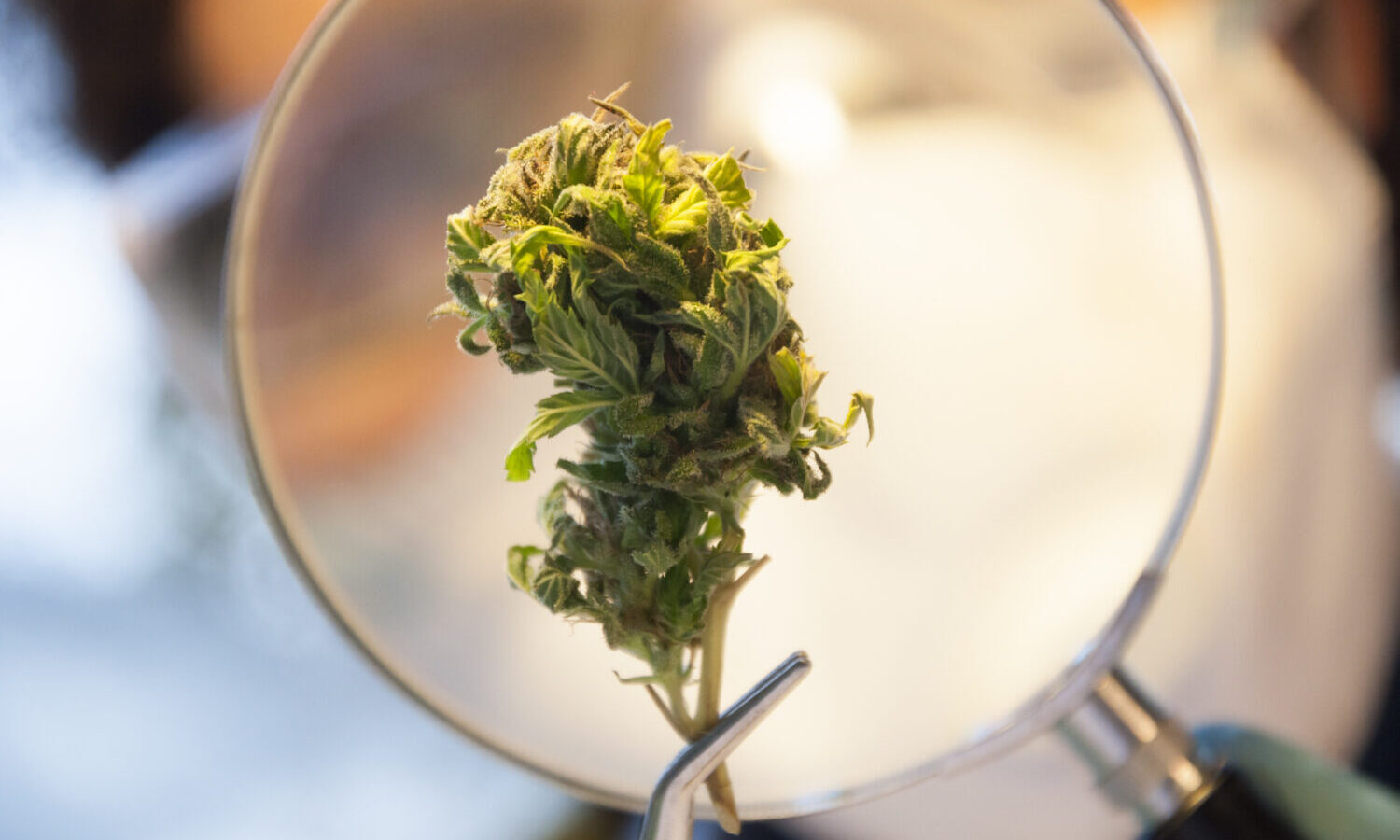Business
What Is Autoflower Marijuana?

The main advantage of autoflowers is that you don’t have to worry about the changing seasons, which is excellent for beginner growers.
Autoflowering marijuana is a type of cannabis that doesn’t rely on the change in light cycles to start flowering. Instead, it flowers automatically after a certain time has passed since it’s been germinated.
For growers, this means that you can get two crops in one year, making autoflower marijuana a big business opportunity. For consumers, it means you can get high-quality cannabis with less waiting time.
But that’s not all autoflowers are good for as some strains are resistant to pests and mold, making them an ideal choice for growers who live in humid climates.
What does autoflowering mean?
As a result of its harsh environment and limited sunlight, a type of cannabis often called Cannabis ruderalis emerged centuries ago in very cold northern areas. We say “often called” as there is genetic evidence that suggests these taxonomic classifications are inaccurate. (Want to know more? Check out Cannabis sativa Vs. “Sativa”) Cannabis in this region began flowering after a period of time, thus acquiring the name “autoflower.”
So, what does the autoflowering feature actually do?
Essentially, this type of cannabis automatically flowers under virtually any light condition, which means they don’t need to follow the 12 hour day/night cycle in order to bloom, as they can thrive in 24 hours of light from seedling to harvest. In contrast, this process is not the same in traditional strains, which rely on a consistent pattern of darkness alternating with light.
Cannabis plants reach the flowering stage when fully mature.
In outdoor cultivation, marijuana plants from traditional seeds begin flowering or growing buds as fall approaches and the sun sets earlier and earlier. As a result of this light reduction, cannabis plants trigger their flowering phase and produce buds. When plants are grown indoors, the flowering cycle can be controlled by reducing the amount of light they receive from 18 hours a day to 12 hours.

The evolution of autoflowering cannabis plants
The autoflowers that initially hit the marketplace at the beginning of the 2000s weren’t that impressive. They lacked potency, the aroma was weak, and yield was disappointing.
While wild cannabis plants tend to have a low level of THC, breeders worldwide have created some spectacular autoflower strains by crossing them with popular commercial strains. Those breeders perfected the process, resulting in an explosion in the number of autoflowering seeds. These strains are ready to harvest within 60 days from seed, stay between 30 and 100 cm high, and produce between 20 to 30% THC.
What are autoflower pros and cons?
Autoflowers have a number of distinctive features:
- Flowering occurs naturally between two and four weeks after planting.
- Typically, it takes ten weeks from planting to harvest.
- Autoflowering seeds are usually feminized. This means there are typically few male plants.
- Plants remain short (30–100cm).
Many popular strains are available in autoflower form. For example, “Blue Dream Auto” combines features of Blue Dream and autoflowering strains, so the plant retains a lot of Blue Dream attributes but makes grows faster.
The main advantage of autoflowers is that you don’t have to worry about the changing seasons, which is excellent for beginner growers. Additionally, autoflowers grow rapidly, so you can usually get two harvests in the same period of time it would take you to get one harvest.

What are autoflower seeds?
For beginners, autoflowering cannabis seeds are the most suitable seeds because of their small size and ability to grow in small areas. They are also very resilient and strong, so beginner mistakes won’t damage them.
Growing autoflower seeds
Choose an environment indoors or outdoors for growing autoflower seeds. Providing seeds have at least 18 hours of direct sunlight per day in an indoor environment, you can cultivate the seeds any time of the year. However, the ideal time to grow seeds outdoors is in the spring, when daylight hours are plentiful.
In any growing environment, autoflowering seeds don’t require a high level of nutrients as they work independently. Autoflower seeds also have the advantage of being able to survive in extreme weather conditions, including freezing temperatures.
Plants grown in pots indoors must have drainage holes to ensure adequate oxygen flow. In addition, it’s a good idea to allow your seeds plenty of room for flowering because some autoflowering strains can grow up to four feet tall.
Where to buy autoflower seeds
Autoflower seeds are available for purchase online from cannabis seed retailers.
Get Started on Your Cannabis Wellness Journey
Have you started your cannabis wellness journey? Jointly is a new cannabis wellness app that helps you discover purposeful cannabis consumption so you can achieve your wellness goals with cannabis and CBD. On the Jointly app, you can find new cannabis products, rate products based on how well they helped you achieve your goals, and track and optimize 15 factors that can impact your cannabis experience. These 15 factors include your dose, the environment in which you consume cannabis, who you are with when you ingest, how hydrated you are, the quality of your diet, how much sleep you got last night, and more. Download the Jointly app on the App Store or the Google Play Store to get started on your cannabis wellness journey.
Sam Anderson is the content Director at Jointly, a cannabis wellness company powered by a proprietary data platform to help people reach their full potential. The company was created on the premise that purposeful cannabis consumption is the key to unlocking a better you. This article originally appeared on Jointly and has been reposted with permission.
Source: https://420-reports.com/wp-admin/post.php?post=4070&action=edit
Business
New Mexico cannabis operator fined, loses license for alleged BioTrack fraud

New Mexico regulators fined a cannabis operator nearly $300,000 and revoked its license after the company allegedly created fake reports in the state’s traceability software.
The New Mexico Cannabis Control Division (CCD) accused marijuana manufacturer and retailer Golden Roots of 11 violations, according to Albuquerque Business First.
Golden Roots operates the The Cannabis Revolution Dispensary.
The majority of the violations are related to the Albuquerque company’s improper use of BioTrack, which has been New Mexico’s track-and-trace vendor since 2015.
The CCD alleges Golden Roots reported marijuana production only two months after it had received its vertically integrated license, according to Albuquerque Business First.
Because cannabis takes longer than two months to be cultivated, the CCD was suspicious of the report.
After inspecting the company’s premises, the CCD alleged Golden Roots reported cultivation, transportation and sales in BioTrack but wasn’t able to provide officers who inspected the site evidence that the operator was cultivating cannabis.
In April, the CCD revoked Golden Roots’ license and issued a $10,000 fine, according to the news outlet.
The company requested a hearing, which the regulator scheduled for Sept. 1.
At the hearing, the CCD testified that the company’s dried-cannabis weights in BioTrack were suspicious because they didn’t seem to accurately reflect how much weight marijuana loses as it dries.
Company employees also poorly accounted for why they were making adjustments in the system of up to 24 pounds of cannabis, making comments such as “bad” or “mistake” in the software, Albuquerque Business First reported.
Golden Roots was fined $298,972.05 – the amount regulators allege the company made selling products that weren’t properly accounted for in BioTrack.
The CCD has been cracking down on cannabis operators accused of selling products procured from out-of-state or not grown legally:
- Regulators alleged in August that Albuquerque dispensary Sawmill Sweet Leaf sold out-of-state products and didn’t have a license for extraction.
- Paradise Exotics Distro lost its license in July after regulators alleged the company sold products made in California.
Golden Roots was the first alleged rulebreaker in New Mexico to be asked to pay a large fine.
Source: https://mjbizdaily.com/new-mexico-cannabis-operator-fined-loses-license-for-alleged-biotrack-fraud/
Business
Marijuana companies suing US attorney general in federal prohibition challenge

Four marijuana companies, including a multistate operator, have filed a lawsuit against U.S. Attorney General Merrick Garland in which they allege the federal MJ prohibition under the Controlled Substances Act is no longer constitutional.
According to the complaint, filed Thursday in U.S. District Court in Massachusetts, retailer Canna Provisions, Treevit delivery service CEO Gyasi Sellers, cultivator Wiseacre Farm and MSO Verano Holdings Corp. are all harmed by “the federal government’s unconstitutional ban on cultivating, manufacturing, distributing, or possessing intrastate marijuana.”
Verano is headquartered in Chicago but has operations in Massachusetts; the other three operators are based in Massachusetts.
The lawsuit seeks a ruling that the “Controlled Substances Act is unconstitutional as applied to the intrastate cultivation, manufacture, possession, and distribution of marijuana pursuant to state law.”
The companies want the case to go before the U.S. Supreme Court.
They hired prominent law firm Boies Schiller Flexner to represent them.
The New York-based firm’s principal is David Boies, whose former clients include Microsoft, former presidential candidate Al Gore and Elizabeth Holmes’ disgraced startup Theranos.
Similar challenges to the federal Controlled Substances Act (CSA) have failed.
One such challenge led to a landmark Supreme Court decision in 2005.
In Gonzalez vs. Raich, the highest court in the United States ruled in a 6-3 decision that the commerce clause of the U.S. Constitution gave Congress the power to outlaw marijuana federally, even though state laws allow the cultivation and sale of cannabis.
In the 18 years since that ruling, 23 states and the District of Columbia have legalized adult-use marijuana and the federal government has allowed a multibillion-dollar cannabis industry to thrive.
Since both Congress and the U.S. Department of Justice, currently headed by Garland, have declined to intervene in state-licensed marijuana markets, the key facts that led to the Supreme Court’s 2005 ruling “no longer apply,” Boies said in a statement Thursday.
“The Supreme Court has since made clear that the federal government lacks the authority to regulate purely intrastate commerce,” Boies said.
“Moreover, the facts on which those precedents are based are no longer true.”
Verano President Darren Weiss said in a statement the company is “prepared to bring this case all the way to the Supreme Court in order to align federal law with how Congress has acted for years.”
While the Biden administration’s push to reschedule marijuana would help solve marijuana operators’ federal tax woes, neither rescheduling nor modest Congressional reforms such as the SAFER Banking Act “solve the fundamental issue,” Weiss added.
“The application of the CSA to lawful state-run cannabis business is an unconstitutional overreach on state sovereignty that has led to decades of harm, failed businesses, lost jobs, and unsafe working conditions.”
Business
Alabama to make another attempt Dec. 1 to award medical cannabis licenses

Alabama regulators are targeting Dec. 1 to award the first batch of medical cannabis business licenses after the agency’s first two attempts were scrapped because of scoring errors and litigation.
The first licenses will be awarded to individual cultivators, delivery providers, processors, dispensaries and state testing labs, according to the Alabama Medical Cannabis Commission (AMCC).
Then, on Dec. 12, the AMCC will award licenses for vertically integrated operations, a designation set primarily for multistate operators.
Licenses are expected to be handed out 28 days after they have been awarded, so MMJ production could begin in early January, according to the Alabama Daily News.
That means MMJ products could be available for patients around early March, an AMCC spokesperson told the media outlet.
Regulators initially awarded 21 business licenses in June, only to void them after applicants alleged inconsistencies with how the applications were scored.
Then, in August, the state awarded 24 different licenses – 19 went to June recipients – only to reverse themselves again and scratch those licenses after spurned applicants filed lawsuits.
A state judge dismissed a lawsuit filed by Chicago-based MSO Verano Holdings Corp., but another lawsuit is pending.
Source: https://mjbizdaily.com/alabama-plans-to-award-medical-cannabis-licenses-dec-1/
-

 Business2 years ago
Business2 years agoPot Odor Does Not Justify Probable Cause for Vehicle Searches, Minnesota Court Affirms
-

 Business2 years ago
Business2 years agoNew Mexico cannabis operator fined, loses license for alleged BioTrack fraud
-

 Business2 years ago
Business2 years agoAlabama to make another attempt Dec. 1 to award medical cannabis licenses
-

 Business2 years ago
Business2 years agoWashington State Pays Out $9.4 Million in Refunds Relating to Drug Convictions
-

 Business2 years ago
Business2 years agoMarijuana companies suing US attorney general in federal prohibition challenge
-

 Business2 years ago
Business2 years agoLegal Marijuana Handed A Nothing Burger From NY State
-

 Business2 years ago
Business2 years agoCan Cannabis Help Seasonal Depression
-

 Blogs2 years ago
Blogs2 years agoCannabis Art Is Flourishing On Etsy

